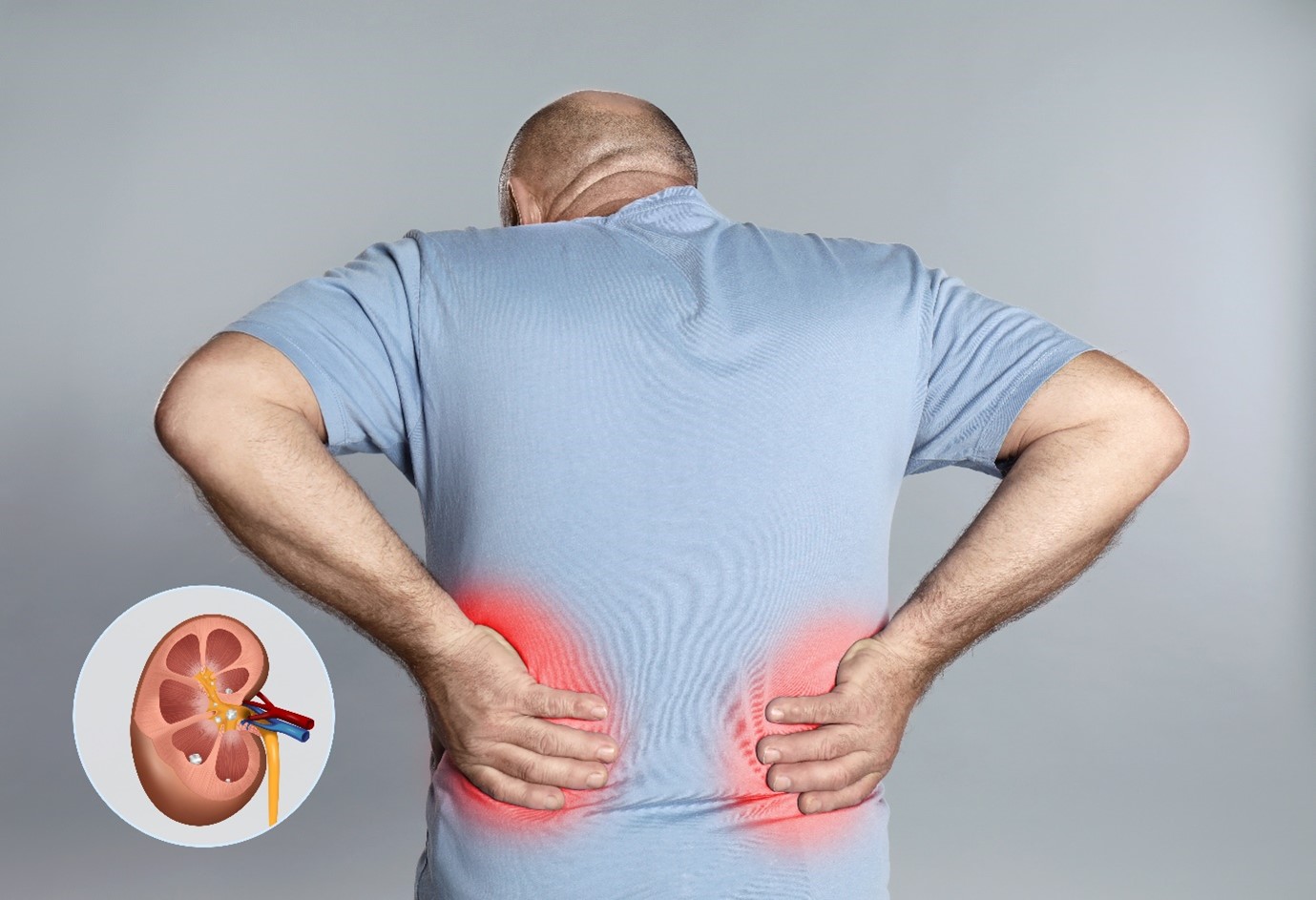These are solid masses of minerals and salts in the kidneys.
These stones can range from small grains of sand to large stones, sometimes even more significant than a golf ball.
They can block the urinary tract, leading to pain and complications.
What Are Kidney Stones?
Kidney stones, also called renal calculi, form when urine substances like
- Calcium
- Oxalate
- Uric acid
becomes concentrated and crystallizes.
What are the Symptoms of Kidney Stones?
Kidney stones may cause no symptoms if they are small enough to pass through the urinary tract without getting stuck.
However, larger stones can cause intense pain, known as flank pain, which often begins in the lower back or side.
Other common symptoms include:
- Severe pain that comes and goes, sometimes called colicky pain.
- Nausea or vomiting.
- Bloody or cloudy urine.
- Pain or difficulty urinating.
- Fever or chills in case of infection.
If untreated, kidney stones can cause blockages, infections, or damage to the kidneys.
What are the Causes and Risk Factors?
Kidney stones are often the result of dehydration, poor diet, or certain medical conditions. Risk factors include:
- Dehydration: Insufficient fluid intake may concentrate urine, increasing the likelihood of stone formation.
- Diet: High salt, sugar, or animal protein intake can increase stone risk.
- Obesity and medical conditions: Obesity, diabetes, and high blood pressure increase kidney stone risk.
- Family history: A positive family history of kidney stones makes you more prone to developing them.
What are the Types of Kidney Stones?
There are several types of kidney stones, each with different causes:
- Calcium oxalate stones: The most common type, formed from calcium and oxalate.
- Uric acid stones: These form from high-protein diets and dehydration.
- Struvite stones: Caused by urinary tract infections.
- Cystine stones: A rare type caused by a genetic disorder.
What are the Treatment Options available?
Treatment for kidney stones depends on their size, location, and the symptoms they cause. Small stones often pass on their own, but larger stones may require treatment such as:
- Medications: Pain relievers, alpha-blockers, or anti-nausea drugs may be prescribed.
- Shockwave lithotripsy: A procedure that uses sound waves to break the stones into smaller pieces.
- Ureteroscopy: A scope is used to remove or break up stones.
- Surgery: In severe cases, surgical removal may be necessary.
How is it Prevented?
To reduce the risk of kidney stones, it’s essential to:
- Drink plenty of water.
- Limit high-sodium, high-sugar, and high-protein foods.
- Maintain a healthy weight and manage underlying medical conditions.
Kidney stones can be painful but are treatable. If you experience symptoms of kidney stones, seek medical attention. At Sri Vaishnavi Hospital, we offer comprehensive care to help manage kidney stones and prevent complications. Contact us today for expert treatment and support!


